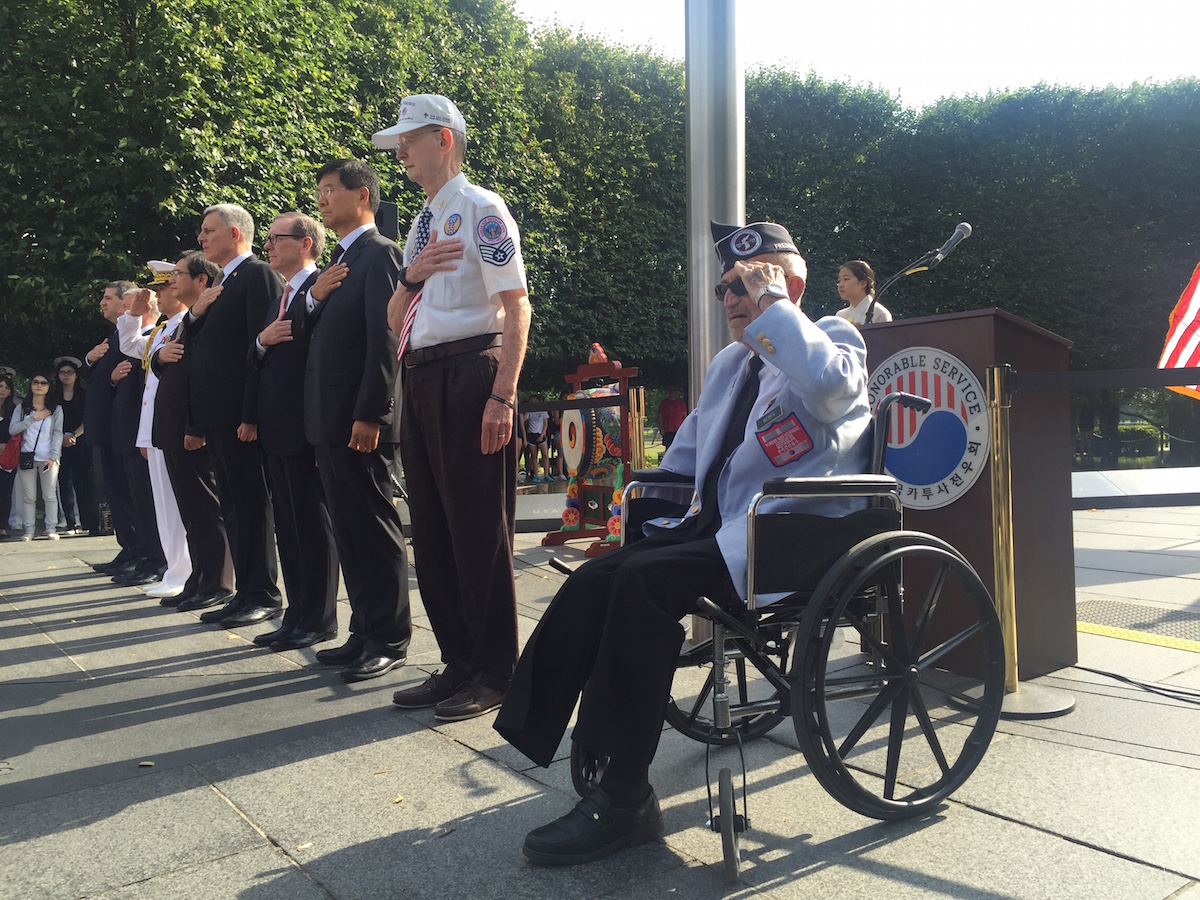WASHINGTON – The Korean War and those who died in it too often “drops through the cracks of American history,” retired Army Col. William Weber said at a weekend wreath-laying ceremony at the Korean War Veterans Memorial to commemorate the start of the war in 1950.
Weber, 90, chairman of the Korean War Veterans Memorial Foundation, is currently pushing for Congress to pass a bill that would add a Wall of Remembrance to the Korean War Veterans Memorial. He and dozens of other veterans attended the wreath-laying ceremony.
Also a veteran, Weber is 90 years old but his five months of constant combat, from the Battle of Seoul to the Battle of Pyeongyang, is still fresh in his memory. The Korean War started on June 25, 1950, and ended July 27, 1953.
Deployed in August 1950 to defeat the Communist powers of North Korea and China, Weber served as the commander of the 187th Airborne Regimental Combat Team, gheading the regiment of about 3,000 men until he was severely wounded and evacuated to the U.S. in February 1951. Weber lost a leg and part of an arm.
“It is a tragedy that the Korean War drops through the cracks of American history,” he said.
“As one examines history and the 20th century, it is becoming increasingly apparent that the Korean War was really a benchmark for the 20th century because just as World War II saved the world for democracy, the Korean War saved the world from communism.”
To mark the 66th anniversary of its outbreak, U.S. and Korean government officials, including Deputy Assistant Secretary of Defense for East Asia Abraham Denmark and Defense Attaché for the Embassy of the Republic of Korea Kyoung-Soo Shin attended the event.
Many of them stressed on the strengthening of the U.S.-South Korea alliance, alluding to North Korea’s recent launch of two mid-range Musudan missiles, one of which reached an altitude of about 600 miles and traveled approximately 250 miles over the Sea of Japan. The escalating North Korean missile threats since mid-April have already put the adjacent countries like South Korea and Japan on high alert and brought forth a trilateral discussion with the U.S., condemning North Korea of its nuclear and missile ambitions.
“South Korea’s alliance with the U.S. is the linchpin of the country’s security policy,” Shin said. “Through joint military exercises, we’ll continue to improve the U.S.- ROK combined defense readiness and rein in North Korea’s provocations.”
The ceremony also recognized the Korean Augmentation To the U.S. Army, or KATUSA, the Korean soldiers who joined American frontline military units; they comprised about 20 to 25 percent of the units.
“For Americans in the units, one chance in nine were being killed, wounded or captured, but for the Koreans in those units, it was one chance in five,” Weber said. “So their sacrifices saved American lives. That’s why we are doing what we’re doing.”
The Korean War, which caused more than 2 million military and civilian deaths, ended with the signing of the armistice between the United Nations, North Korea and China. As a peace treaty had never been signed after the conflict, the two Koreas are technically in state of war and the U.S. troops are still stationed in South Korea today.

